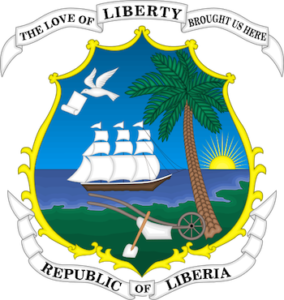
Liberian Coat of Arms
This date in 1847 marks Independence Day in the Republic of Liberia. Liberia traces its establishment to the American Colonization Society (ACS), founded in 1816 to resettle freed American slaves in Africa.
The society mainly comprised Quakers and slaveholders in Washington, D.C. ACS. The Quakers opposed slavery, and the slaveholders opposed the freedom of Blacks, but they agreed on one thing: that Blacks should be repatriated to Africa. The Quakers felt that freeborn Blacks and former slaves would face better chances for freedom in Africa than in the United States. This was a controversial issue among both Blacks and whites. The society membership included James Monroe, Andrew Jackson, Daniel Webster, and Francis Scott Key.
The concept began in 1822 when the American Colonization Society established Liberia as a place to send Black people who were formerly enslaved. Other Africans, who were never enslaved, also emigrated to Liberia. In 1842, Joseph Roberts became its first president.
Blacks gradually migrated to the colony and became known as Americo-Liberians. Many present-day Liberians trace their ancestry to them. On that date in 1847, the Americo-Liberian settlers declared the independence of the Republic of Liberia. The first Americo-Liberians, led by Jehudi Ashmun, began the settlement. A constitution modeled on the United States emerged, and Liberia became an independent republic.
PBS: Global Connections, a group of Web sites created by the WGBH Educational Foundation.